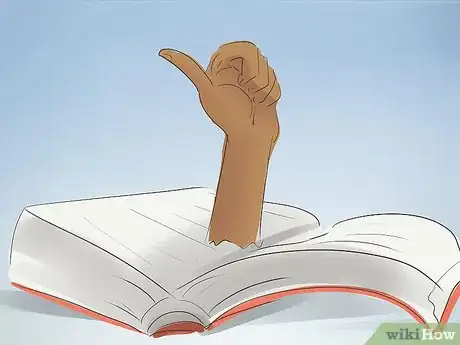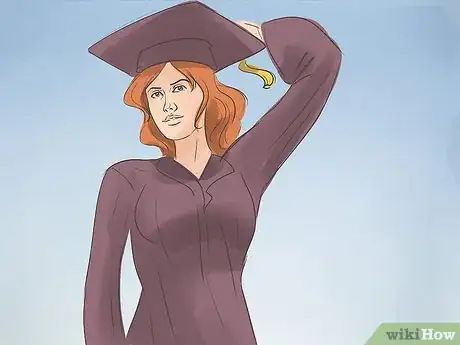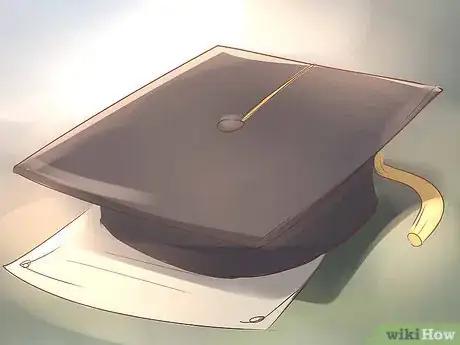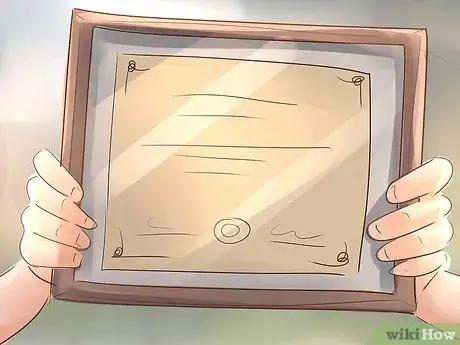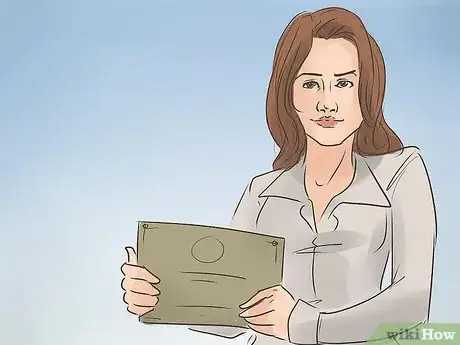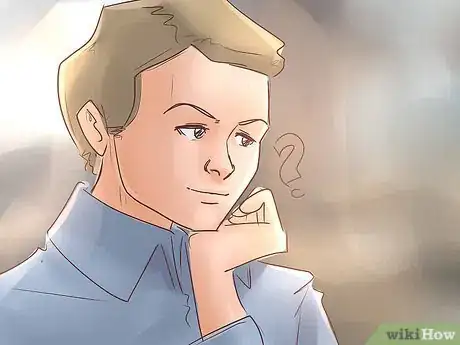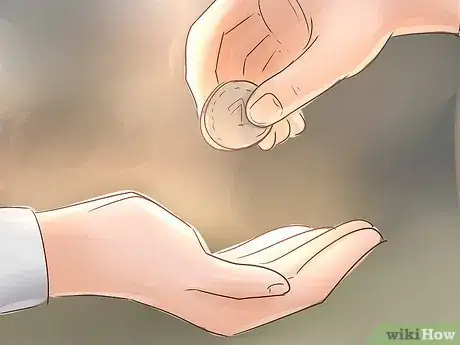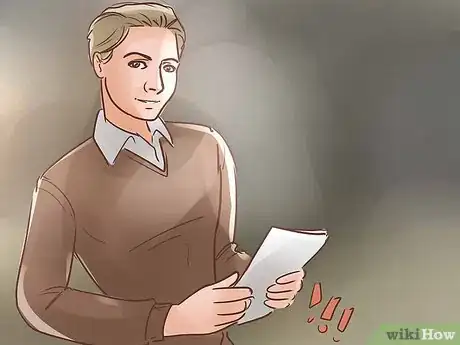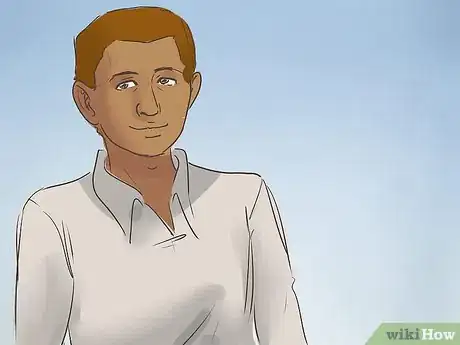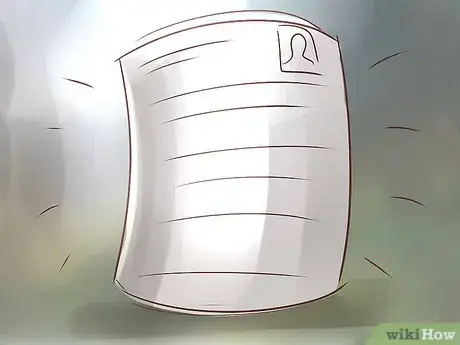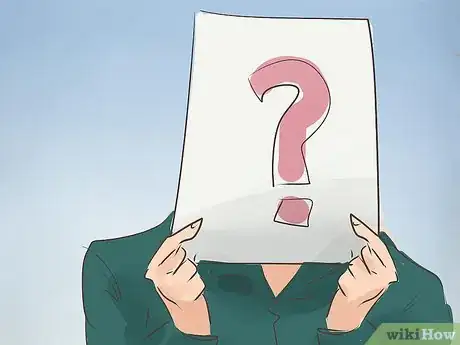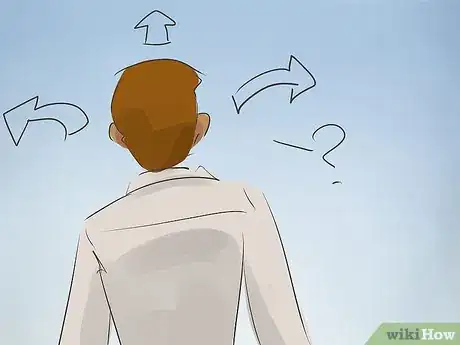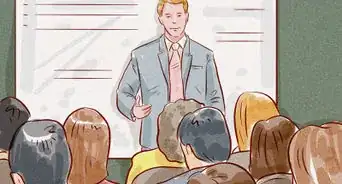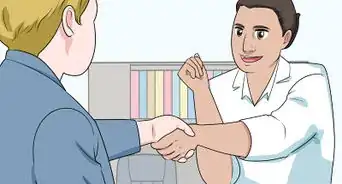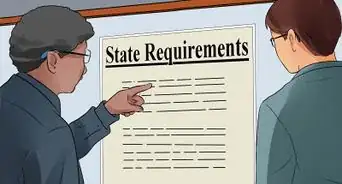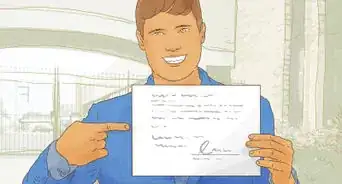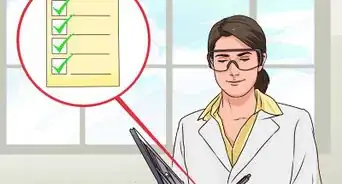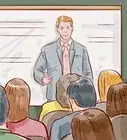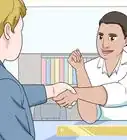This article was co-authored by Sean Alexander, MS. Sean Alexander is an Academic Tutor specializing in teaching mathematics and physics. Sean is the Owner of Alexander Tutoring, an academic tutoring business that provides personalized studying sessions focused on mathematics and physics. With over 15 years of experience, Sean has worked as a physics and math instructor and tutor for Stanford University, San Francisco State University, and Stanbridge Academy. He holds a BS in Physics from the University of California, Santa Barbara and an MS in Theoretical Physics from San Francisco State University.
There are 7 references cited in this article, which can be found at the bottom of the page.
This article has been viewed 49,478 times.
Teaching physics is perhaps one of the more challenging subjects one can teach. The field of physics is constantly being updated with new findings so you will need to be constantly updating your knowledge. Furthermore, physics is, for many students, a very challenging subject to understand. A good physics teacher will be able to break down the complex topics into a more simplified form to help others understand.[1] On the other hand, physics teachers are in especially high demand at the high school and junior college levels. Thus, you will likely receive higher salaries than teachers of other subjects, and you will also have more options when it comes to the location where you will teach.
Steps
Getting An Education
-
1Take all the math and science you can while in high school. In addition to physics, you should take classes in chemistry and biology. The math classes you should take include geometry, algebra, pre-calculus algebra, and calculus. If available, you should also take trigonometry and analytical geometry. This will give you a good idea about whether or not physics is a subject you truly enjoy.
- Take your coursework seriously. Even if you decide to pursue a different career, if you want to go to college, you will need to have good grades in order to get into the university you want.[2]
- Some school districts begin with biology, then move on to chemistry and physics, while others offer physics first, and then move to the other sciences. Some high schools also offer advanced as well as introductory physics classes.
- You should also take as many English classes as you can in high school to improve your written and verbal communications skills; you may also want to consider a foreign language if you think you might like to teach in a foreign country.
-
2Decide at what level you want to teach physics. The level at which you plan to teach physics will determine what credentials you need.[3] If you plan to teach at the middle and high school level, you will likely need only a bachelor's degree initially, while if you plan to teach at the community college level, you will most likely need to obtain a master's degree in addition to your bachelor’s degree.
- Remember that you can always change your mind. If initially you wanted to be a high school physics teacher, but later decide you’d actually like to become a professor, you can always return to college to earn a higher degree.
Advertisement -
3Find out the requirements in the state where you want to teach. Different states have different laws that determine who can and cannot teach a particular subject, especially at the high school level. If you wish to teach high school physics be sure to understand the legal requirements for becoming a physics teacher.[4]
- This information should be available through your state board of education. You can find this by doing an internet search with the terms, “State Board of Education” and the name of your state.
- You can also talk with any teachers you know to see if they can give you any advice about becoming a teacher in your state.
-
4Obtain your bachelor's degree. Depending on which college you attend, you may major in physics and minor in education, major in education and minor in physics, or go for a double major. Your physics classes will include classes in electromagnetic theory, optics, quantum physics, and thermodynamics, and may also include classes in astronomy and geology.
- Typically, your education coursework will include classes in general education theory and practical courses in teaching physics, concluding with either a single semester or 2 semesters of student teaching during your senior year. Most bachelor's degree programs take about 4 years to complete.
- Some programs are structured so that you take your physics classes first and then your education classes, while others are structured so you take your physics and education classes at the same time.
- College classes in either technical writing or scientific writing may also be helpful to build on the English classes you took in high school.
-
5Consider getting your master's degree. If you plan to teach physics at the community college level, you'll need to get a master's degree before you can obtain a teaching position. If you plan to teach at the middle or high school level initially, you probably won't have to get your master's degree at first. However, many districts do provide incentives for teachers to get their master's degrees, and some states require teachers to hold master's degrees either at the start of their teaching careers or after several years. Most master's programs can be completed in 2 years and usually are oriented toward more independent study than undergraduate programs.[5]
- Some universities will also accept master's degree holders as professors of physics on a part-time or adjunct basis.
- Check the Board of Education website for the state or district in which you plan to teach to see whether and when you need to acquire your master's degree to be a physics teacher.
-
6Obtain a PhD, if desired. This step is likely required if you're seeking a full-time position as a physics professor at a college or university that leads to tenure. PhD programs last for several years, during which time you'll combine teaching as a graduate assistant with independent study and research.
- You will need strong research skills to become a professor at a university as nearly all universities require their professors to publish their scientific findings on a regular basis.
- You may be able to teach at a university without a PhD, but your contract will likely be limited when it comes to opportunities for advancement. If you have a PhD, you can also teach at lower levels if you wish. For example, you may be a top candidate for positions at private or independent high schools.
-
7Ask about alternative certification programs. In some states, if you already have a bachelor’s degree, but not specifically in education or science, you may be able to undertake a certification program that will allow you to teach. However, this varies widely by state so you will need to consult with the board of education in your state to see if this is a possibility.[6]
- Beware online certification programs. While there are likely some legitimate online certification options, chances are that if you simply search Google, you will come across some scams or other programs which promise certification, but do not hold the accreditation necessary to do so. If you are interested in online degrees or certification programs, be sure to consult with the board of education about what online programs are accredited.
-
8Look into financial aid. Regardless of what degree you will need to earn, there are many options available to help you cover the costs of earning a degree. The best way to find out what’s available at your university is to visit your financial aid office. They will be able to explain to you the process of applying for financial aid, and can also give you a list of scholarships that you can consider applying for.[7]
- The Robert Noyce Teacher Scholarship Program offers lots of scholarship options to aspiring teachers. In addition, PhysTec offers a number of scholarships to students of physics.
- Many master’s and doctoral degree programs offer assistantships or other financial aid to students of their program. Be sure to look into what each program can offer you. Some programs require that you apply for the aid, so make sure that you include any required information with your application.
Finding a Job and Gaining Experience
-
1Become a tutor. One good way to gain experience teaching physics is to offer tutoring.[8] You may have done this already to give yourself an idea about whether or not you will enjoy teaching. You can start offering tutoring at any point during high school or college. If you are a student in university, check to see if there is a defined institution where tutors are hired. If you are able to get hired on as a tutor through the university then you will be able to get letters of recommendation from your supervisor.
- Be sure to include that you have been a tutor on your resume.
-
2Take advantage of student teaching. If you are a university student, your supervisors will likely help you arrange this part of your education. However, if for some reason it is not arranged for you, take the initiative and ask your supervisors how you can get involved in student teaching.[9]
- Student teaching will give you an opportunity to take everything you’ve learned and apply it under the guidance of a more experienced teacher. You will be required to plan lessons, teach, and answer questions in a real world environment.
-
3Look for teaching assistantships. If you are a graduate school student, there are likely graduate teaching assistantships, which will provide you with an opportunity to give lectures to real students. Not only that, but in many cases the professor of the class will give you feedback on your teaching in order to help you improve.
- An added advantage is that graduate assistantships are usually paid, so you will be able to earn a bit of extra money at the same time.
- If you are still an undergraduate student, but know that you would like to teach physics at the college level, then see if there are opportunities for undergraduate teaching assistantships.
-
4Consider applying for a job where you completed your student teaching. If you completed your student teaching at a school that is in need of more physics teachers, then consider submitting an application there. You will have the advantage that the people who would be hiring you already have knowledge of you and your teaching ability.
- Don’t be afraid to talk with the teacher who mentored you, especially if you got along well and were able to impress them. Let them know that you are ready to start your teaching career and are planning to submit an application to teach there.
-
5Utilize career services. Nearly all universities have some type of career services department where you can go to get help searching for jobs. Most offices will offer help even if you have already graduated. Your tuition helps to fund these services so you may as well take advantage of them.[10]
- Even if you have already found jobs you want to apply for, you can still visit career services to get help with improving your resume, practice interviewing skills, and extra help with writing cover letters.
Deciding Whether This is the Right Career for You
-
1Think about why you want to become a physics teacher. While physics teachers often have a lot of good jobs to choose from due to demand, being a teacher is not an easy job, especially when teaching a difficult subject such as physics. How do you feel when you think about teaching the subject to students for the rest of your life?
- Remember that you can always change careers. While it is certainly not easy, if the idea of teaching the same subject for 40 years scares you, remember that you can try something new if you really do get tired of teaching.
- If you enjoy talking about physics with others and have a real love for the subject, then you will probably make a great physics teacher.
-
2Talk to physics teachers. If you are still in high school or college, visit the physics teacher. Tell them that you are thinking of becoming one, and ask them to chat with you about the advantages and disadvantages of teaching the subject.
- Experienced teachers can give you a good idea about what to expect when it comes to teaching physics. However, remember that their advice is somewhat subjective. Try to talk to a few different teachers as you may stumble upon some teachers who have become really bitter about teaching for one reason or another.
-
3Use tutoring to gauge your interest in physics. One way to help yourself know whether or not this is something you would enjoy is to tutor. If you already have a good knowledge of the field, then consider offering free tutoring to those who are struggling. Although you could charge for your tutoring to earn a bit of extra money, if you are more interested in the experience, then offering tutoring free of charge will give you a chance to tutor more people.
- You can advertise your tutoring by placing flyers with your name, phone number, and/or email near classrooms where physics is being taught. You can also place the flyers around your town where students typically hang out.
Expert Q&A
-
QuestionWhat makes a good physics teacher?
 Sean Alexander, MSSean Alexander is an Academic Tutor specializing in teaching mathematics and physics. Sean is the Owner of Alexander Tutoring, an academic tutoring business that provides personalized studying sessions focused on mathematics and physics. With over 15 years of experience, Sean has worked as a physics and math instructor and tutor for Stanford University, San Francisco State University, and Stanbridge Academy. He holds a BS in Physics from the University of California, Santa Barbara and an MS in Theoretical Physics from San Francisco State University.
Sean Alexander, MSSean Alexander is an Academic Tutor specializing in teaching mathematics and physics. Sean is the Owner of Alexander Tutoring, an academic tutoring business that provides personalized studying sessions focused on mathematics and physics. With over 15 years of experience, Sean has worked as a physics and math instructor and tutor for Stanford University, San Francisco State University, and Stanbridge Academy. He holds a BS in Physics from the University of California, Santa Barbara and an MS in Theoretical Physics from San Francisco State University.
Academic Tutor A good teacher can make the subject interesting. If you make physics relatable to your students, they'll be able to see it as the natural language of the universe.
A good teacher can make the subject interesting. If you make physics relatable to your students, they'll be able to see it as the natural language of the universe. -
QuestionWhat education do I need to be a physics teacher?
 Sean Alexander, MSSean Alexander is an Academic Tutor specializing in teaching mathematics and physics. Sean is the Owner of Alexander Tutoring, an academic tutoring business that provides personalized studying sessions focused on mathematics and physics. With over 15 years of experience, Sean has worked as a physics and math instructor and tutor for Stanford University, San Francisco State University, and Stanbridge Academy. He holds a BS in Physics from the University of California, Santa Barbara and an MS in Theoretical Physics from San Francisco State University.
Sean Alexander, MSSean Alexander is an Academic Tutor specializing in teaching mathematics and physics. Sean is the Owner of Alexander Tutoring, an academic tutoring business that provides personalized studying sessions focused on mathematics and physics. With over 15 years of experience, Sean has worked as a physics and math instructor and tutor for Stanford University, San Francisco State University, and Stanbridge Academy. He holds a BS in Physics from the University of California, Santa Barbara and an MS in Theoretical Physics from San Francisco State University.
Academic Tutor At the very minimum you'll need a Bachelor's degree in Physics. To teach in higher education you may also need a master's or PhD.
At the very minimum you'll need a Bachelor's degree in Physics. To teach in higher education you may also need a master's or PhD. -
QuestionWhat is the minimum salary of a physics teacher?
 Community AnswerThe average salary of a physics teacher is $54,144 per year; however, the minimum would vary depending on your region and the type of school in which you teach. Public schoolteachers make more than those in private schools (conditions in private schools tend to be better, so the teachers are amenable to accepting less in pay), so a physics teacher in a public school in New York might start out at $60,000 as a "minimum", whereas a teacher in a private school in South Dakota could easily make less than $40,000.
Community AnswerThe average salary of a physics teacher is $54,144 per year; however, the minimum would vary depending on your region and the type of school in which you teach. Public schoolteachers make more than those in private schools (conditions in private schools tend to be better, so the teachers are amenable to accepting less in pay), so a physics teacher in a public school in New York might start out at $60,000 as a "minimum", whereas a teacher in a private school in South Dakota could easily make less than $40,000.
Warnings
- Remember that physics is a very complicated and difficult subject for some. If you want to become a physics teacher understand that you will need to be patient with those who do not understand the topic in the same way that you do.⧼thumbs_response⧽
References
- ↑ Sean Alexander, MS. Academic Tutor. Expert Interview. 14 May 2020.
- ↑ http://www.bls.gov/careeroutlook/2015/article/career-planning-for-high-schoolers.htm
- ↑ Sean Alexander, MS. Academic Tutor. Expert Interview. 14 May 2020.
- ↑ http://learn.org/articles/How_Do_I_Become_a_High_School_Physics_Teacher.html
- ↑ http://learn.org/articles/How_Do_I_Become_a_High_School_Physics_Teacher.html
- ↑ http://www.educationdegree.com/programs/alternative-teacher-certification/
- ↑ https://www.aps.org/careers/physicists/becoming-tchr.cfm
- ↑ Sean Alexander, MS. Academic Tutor. Expert Interview. 14 May 2020.
- ↑ http://www.nctq.org/dmsView/Student_Teaching_United_States_NCTQ_Report

